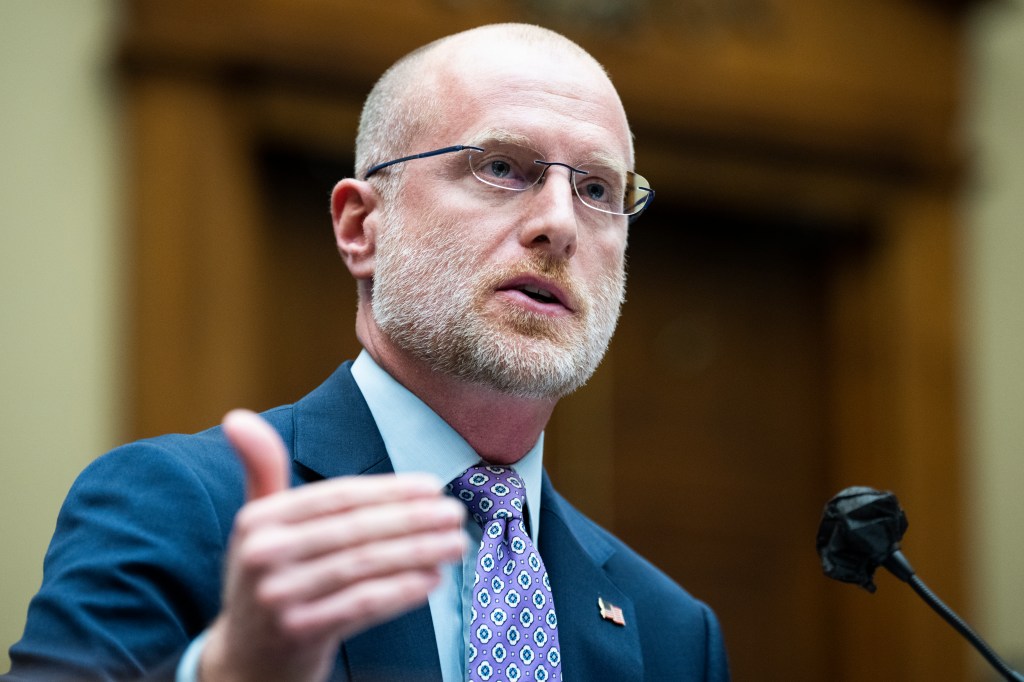The chairman of the FCC has opened another inquiry into a major media company, this time over the relationship between Comcast‘s NBCUniversal and its local broadcast affiliates.
Brendan Carr informed Comcast CEO Brian Roberts of the inquiry in a letter sent on Tuesday.
In the letter, first reported by Newsmax, Carr wrote that the “FCC has an interest in and the authority to promote the public interest and to ensure that local broadcast TV stations retain the economic and operational independence necessary to meet their public interest obligations. I want to ensure that Comcast’s relationships with local broadcast TV stations comply with all of the relevant federal regulations—again, regulations designed to ensure that local stations meet their public interest obligations.”
He wrote that he had heard “numerous reports that the approach that NBC and other similarly situated networks are taking in recent negotiations is an attempt to extract onerous financial and operational concessions from local broadcast TV stations. Under this approach, networks threaten termination of long-held affiliations, which could result in blackouts and other harms to local consumers of broadcast news and content.”
He wrote that he had asked the FCC’s media bureau to start the review, asking for affiliation agreements that Comcast holds with local broadcast stations.
A Comcast spokesperson did not immediately return a request for comment.
Carr has long talked about trying to boost the status of local stations, citing polling showing a higher level of trust for local newscasts vs. national content. In his letter to Roberts, he cited a Gallup poll showing low trust in mass media, and wrote, “And this is not just a matter of opinion. Viewers are voting with their feet, as more and more people are turning to new media for their information and tuning out the national news media altogether.”
The inquiry is the latest from the FCC chairman, who has earlier sent letters to Comcast and Disney over its diversity, equity and inclusion practices. Despite the FCC’s approval last week of Skydance’s merger with Paramount Global, a complaint against CBS News, over the way that 60 Minutes edited an interview with Kamala Harris, remains on the docket, along with other complaints related to network content.
Network affiliate groups have pointed to a “rapidly changing” network-affiliate relationship, driven in part by the migration of programming to streaming services like Paramount Plus, Disney+-Hulu and Peacock.
“The affiliation fees that the Big Four networks charge affiliates continue to increase while the distribution exclusivity that was once that hallmark of those agreements continues to erode,” major network affiliate groups wrote in a filing with the FCC last year.
The affiliates argued that they are subsidizing ever increasing live sports rights, yet they are no longer exclusive to broadcast.
“Increasingly, the networks are using their own subscription-based streaming platforms to distribute the same programming, including live sports, being licensed to (and paid for by) broadcasters. In a perverse anticompetitive twist, local affiliates are forced to pay the networks for the opportunity to compete for viewers and advertising revenue against platforms owned by the very same networks with which they are affiliated (on terms and conditions that are disadvantageous and anticompetitive, to boot).”
They also have argued that the power dynamics have “artificially” depressed local stations’ revenue, making it even more difficult for the stations to help networks secure high valued sports rights. Instead, such events as NFL playoffs are going behind paywalls.
In his letter, Carr also cited restrictions on a station’s negotiations for carriage on streaming platforms, as well as provisions that “restrict a local station’s ability to compete for local sports rights.” He wrote that such restrictions “are further evidence of this growing imbalance” between the network and affiliates.
Carr also raised similar issues in a letter he sent to Bob Iger, CEO of The Walt Disney Co., in December. That was before Carr became FCC chairman.

